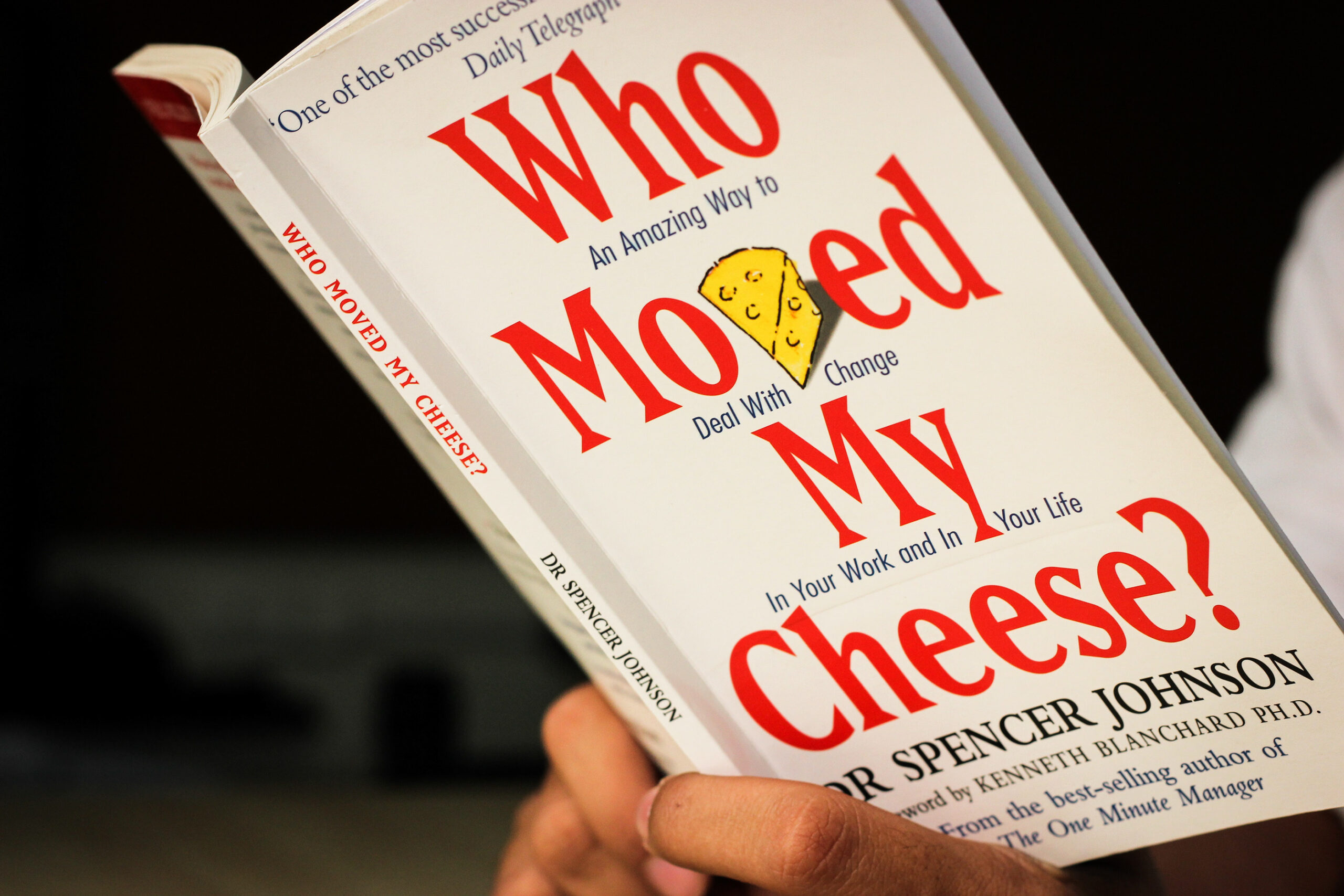Tag: Responsibility
Wisdom for Teams #22


—
“Why not whip the teacher when the student misbehaves?”
—
DIOGENES THE CYNIC (412 or 404 – 323 BCE), Greek philosopher and one of the founders of Cynic philosophy.
Wisdom for Teams #5

“When we are no longer able to change a situation,
we are challenged to change ourselves.”
VICTOK FRANKL (1907-1997), Austrian neurologist and psychiatrist, a Holocaust survivor, and author of “Man’s Search For Meaning“
—

I Broke a Promise


Photo Credit: Jonny Miller
I broke a promise when I decided I’d no longer serve as a priest.
I broke a promise when I decided I’d end the relationship.
I broke a promise when I decided I’d stop seeing that friend.
Breaking a promise didn’t feel good. But it happened, again and again.
This week I came across a poem by David Whyte about how to break a promise.
Apparently we humans break promises, again and again. Apparently we can learn to do it better.
Shall we accept that breaking promises is part of life, like making them is?
—
To Break a Promise
Make a place of prayer, no fuss now,
just lean into the white brilliance
and say what you needed to say
all along, nothing too much, words
as simple and as yours and as heard
as the bird song above your head
or the river running gently beside you.Let your words join one to another
the way stone nestles on stone,
the way water just leaves
and goes to the sea,
the way your promise
breathes and belongs
with every other promise
the world has ever made.Now, let them go on,
leave your words
to carry their own life
without you, let the promise
go with the river.Stand up now. Have faith. Walk away.
In “The Sea in You: Twenty Poems of Requited and Unrequited Love” by David Whyte
P.S. David, I hope you don’t mind me sharing your poem here. Thank you.
Wisdom for Teams #4

“The problem is not the problem.
The way we see the problem is the problem.”
STEPHEN COVEY (1932-2012), author of The Seven Habits of Highly Effective People
—

A Story About Assumptions, Surprises, and More


Photo courtesy of One Day Web Group
—
In the year 2004-2005, I worked as a hospital chaplain, the priest that visits patients at the hospital. It was a year of great learning. This story is conceivably my greatest lesson learnt.
—
—
This was recorded as part of a storytelling evening organised by Lukas Liebich. You can learn more about it here: https://www.facebook.com/events/59426…
The Question That Helped Me Face Uncertainty


—
Most of my work is done face-to-face. Or at least it used to be. When the pandemic broke out I soon realised that a profound and irreversible change in the events and training industry was going to take place. The urge to freak out was big:
- How long will the confinement last?
- How long until face-to-face events will be allowed?
- How will I transfer my trainings online?
- What equipment do I need?
- How does this sh*t work???!!!
And then it happened. Early on in the lockdown, a friend of mine, Onu Igbokwe, referenced a book: Who Moved My Cheese, by Spencer Johnson. I had read the book years back but decided to listen to the audiobook. Life changing. It’s a must read. If you’ve already read it, and you’re facing uncertainty, then read again.
It’s a short book. A couple of hours is enough. But don’t be fooled by its length. The author says it took about 20 years to write it. Every word counts. What most changed my approach and behaviour was one simple question:
—
What would I do if I were not afraid?
—
The voice in your head might be saying: “But I am not afraid”. So here are other reactions to the uncertainty that comes with change:
- worry, concern, unease
- doubt, self-doubt, confusion, hesitation
- agitation, stress, anxiety, nervousness
- denial, refusal, complaining, intolerance, aversion
Fear has a funny way of disguising itself. If you’re feeling any of these, chances are there’s a degree of fear involved — the fear of failure. So here’s another way of putting the question:
—
What would you do if you could not fail?
—
After listening to the book things got better. I did a full-blown online training with Amazon, and was invited to impart shorter trainings and talks, as well as online coaching sessions. And next week I’ll be facilitating a two-day online “home-site” with King, the creators of Candy Crush.
Luck? Yes. Absolutely. So much luck. I also like to think Seneca is at least somewhat right when he says luck is what happens when preparation meets opportunity.
But even if the book or my behaviour had nothing to do with my work picking up, my experience nonetheless of these uncertain times has consequently been more tranquil. So thank you, Spencer, and thank you, Onu!
The Golden Rule is Making the World Worse


—
The Golden Rule — treat others as you would like others to treat you — is well intentioned in that it asks us to extend fairness and respect to others. But the outcomes are not necessarily good.
—
The problem is that it is based on a fundamentally flawed assumption.
—
The assumption that you want what I want, that fairness and respect mean for you what they mean for me. And this is rarely true. This is particularly relevant given the evils caused by the racism and the violence we’re seeing these days.
It is so easy to fall into the trap of assuming my way is the right way, and then to treat others as I think I should, without taking into account what they want. This is dangerous because it can make them feel disrespected and I might end up resenting the fact that they are being unappreciative of my efforts.
And we don’t have to go halfway across the world to make a difference. This applies to how we treat people at work, at home, on the streets, and in social media. Lest we come across as jerks, we want to be careful NOT to treat others like we would like them to treat us, unless we’re sure that is what they really want.
—
Never assume you know what others want. The alternative is to practice empathy.
—
The golden art of putting ourselves in their shoes to figure out how they would like to be treated. And we will probably be surprised by how much that can differ from what we expected to be appropriate.
If we are going to build a more fair, generous and compassionate world, we’re going to need a better rule. Here’s an iteration:
—
THE GOLDEN RULE 2.0
Treat others as THEY would like to be treated.
—
#BlackLivesMatter
Coping with Coronavirus: The Last Time

Have you heard of a technique that helps with tedious tasks and stressful situations?
One that can be practised at any time, in any place, and by anyone, including children?
—
Six Rookie Mistakes When Leading Remote Teams


—
When there’s a sea storm, captains are called upon to reassure their crew, so that together they keep the ship safe enough to move in the right direction.
The Coronavirus storm has forced teams — without warning and without delay — to work from home in improvised office spaces, fighting to focus on work while juggling several other responsibilities and concerns at the same time.
If remote working poses a challenge in and of itself, all the more so in crisis conditions, where uncertainty and confusion make the load all the heavier.
Since 2011, I’ve been helping organizations — in good and bad times — build teams, many of which with some or all their members working remotely, often in different time zones.
Here are six mistakes you want to avoid (and six recommendations) when leading teams remotely, especially in crisis conditions.
—
Mistake #1: Believe it is (almost) business as usual
—
A new paradigm is emerging, as tends to happen in crisis. And with it, new challenges are thrown at your team. It would be a mistake not to stop and fully appreciate the nature of the challenges you and your team are now facing.
It’s a mistake to think this is only about keeping things going a bit longer before it’s over. It’s a new problem. Face it with your team.
—
RECOMMENDATION: Do a diagnosis
Imagine you are Dr. House. If the challenge you now face is an illness, what would you call it?
—
Mistake #2: To execute without a roadmap
—
In a crisis it is easy for teams to get disoriented, especially if they are forced in a rush to work remotely. You might have a sense of what comes next, but the team most likely has no f**king idea.
It is a mistake to ask teams to continue moving forward without a new road map that shows this is where we are, this is where we are going, and most importantly, this is why we’re going. I wonder what Nietzsche was thinking when he said: “He who has a why to live for can bear almost any how.” 😉
—
RECOMMENDATION: Give them context and relevance
Explain to the team how their work fits in the larger picture, and why their contribution really matters.
—
Mistake #3: Fail to clarify new expectations
—
New problems require new behaviours. It it especially important that we define deliverables and ownership so that everyone knows who does what and who is responsible for making sure it gets done.
—
RECOMMENDATION: Tell them what they CAN’T screw up
New problems require exploration, which can lead to failure. It is crucial you specify what bits you expect the team to do absolutely right, the bits where failure is not an option.
—
Mistake #4: Make it a one-way road
—
If feedback is important, now it is more than ever. It’s a rookie’s mistake to fail to create NEW channels for feedback. Unless you ask, you will not know the struggles and suggestions your team has.
—
RECOMMENDATION: Tell them it’s NOT ok to stay stuck and silent
Send out questions before meetings, and ask everyone to come prepared to share.
—
Mistake #5: Neglect positive feedback
—
Humans need feedback to grow, which makes giving feedback the gift of growth: constructive feedback gives us the path for growth, and positive feedback gives us the energy to grow.
In times of crisis, teams need tons of positive feedback — the energy — to get through challenges. Forgetting to give positive feedback is a silly mistake.
—
RECOMMENDATION: Double down on positive feedback
Give twice as much positive feedback and show twice as much appreciation. Start with positive feedback. End with positive feedback. Transition with positive feedback. And ask the whole team to give… POSITIVE FEEDBACK.
—
Mistake #6: Undervalue repetition
—
The Romans believed that “repetitio est mater studiorum”, that repetition is the mother of learning. When working remotely, technical issues can make getting information across difficult.
Moreover, when remote work is being improvised moment by moment and under great uncertainty, tension is generated, which makes getting information across even more difficult.
Hence the need to repeat, repeat, repeat.
—
RECOMMENDATION: Sound like a broken record
Say it at the beginning. Repeat in the middle. Ask them to say it. And say again at the end.
Coping with Coronavirus: A Tale from Greek Mythology

In this tough time, it is natural to experience unpleasant moments.
This tale helps us appreciate that these moments can also play a meaningful role. If only…

